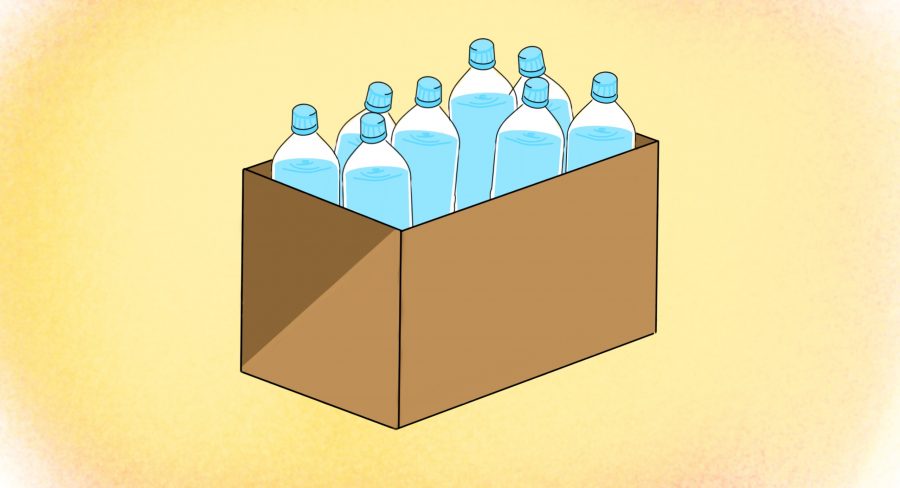For seven long days, the city-wide water crisis wreaked havoc on the lives of 880,000 Austinites. People scrambled to find clean bottled water amid empty grocery shelves and overpriced water cases. Many stocked up to prepare for the worst. On Oct. 28, the city lifted the boil-water notice, leaving many residents with cases of water they no longer needed.
Throughout the water crisis, residents stocked up on water bottles as early and quickly as possible. Many students had friends or family bring them cases of water after shelves at the local Target and H-E-B went empty. Regardless, students are now left with cases upon cases of water bottles they don’t need and wouldn’t otherwise consume.
Resources, such as refillable water stations and filtered tap water, provide students with clean water. In light of the end of the water crisis, students should donate the extra water cases they would normally not use. Students can reduce their environmental footprint and increase their charitable impact through water bottle donations to nonprofits around Austin.
Lorena Ortiz, an environmental science freshman, is one of many students who began drinking bottled water during the crisis. She currently has nine cases of unfinished water bottles in her dorm room.
“I’ve been drinking fountain water and using refillable bottles all this year, but now that my parents brought me drinking water for the crisis, I’m drinking that,” Ortiz said. “I’d be totally fine donating my water, because I’m not going to finish nine cases by the end of the semester.”
With the demand for bottled water gone, students such as Ortiz can and should donate their water to local nonprofits who need it.
There are several places that accept water bottle donations through drop-offs. Places such as the Refugee Services of Texas Austin Service Center, Family Eldercare and Foundation for the Homeless all need water donations delivered at their locations for those in need in Austin.
For students who do not have the means to drive to these locations, there are other options. They can carpool with friends, or even better, UT could create a designated station to deliver extra water cases and expedite the donation process for students. A drop-off location for water on campus would help students conveniently deliver their water to organizations in need.
Another organization that accepts water is Mobile Loaves and Fishes, the largest food aid program to the homeless and working poor in Austin. The organization has a truck ministry with the St. John Neumann Commissary that uses trucks to deliver meals, water and clothes to Austinites in need.
Tony Spinelle, the manager of St. John Neumann Commissary, said their truck needs 30 24-bottle water cases, and some of the other eight trucks likely also need water donations.
Now that the water crisis is over, we must seek charitable ways to donate our excess water bottles. Instead of drinking all the leftover water, students should consider using refillable water bottles and giving the water to Austinites who don’t have access to clean water. A combined effort from the University and students to donate water to nonprofits in Austin will create a widespread positive impact in the aftermath of the water crisis.
Mathavan is a business honors freshman from McAllen.





















